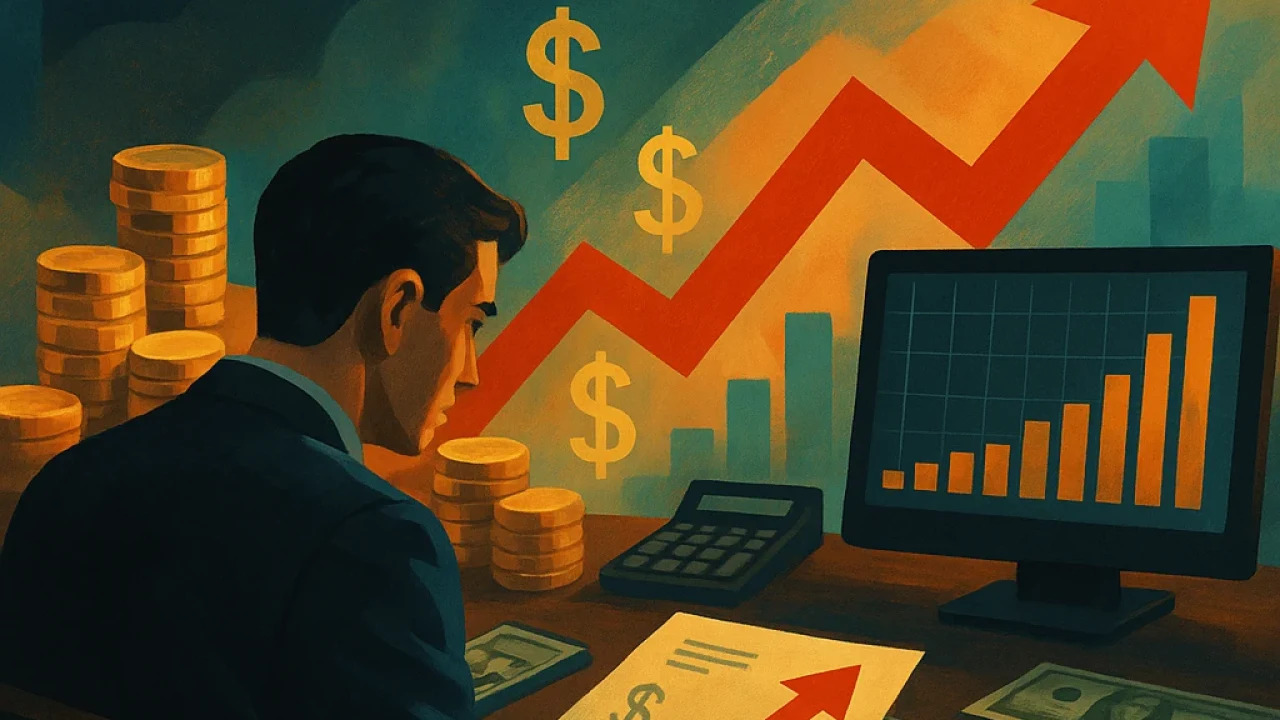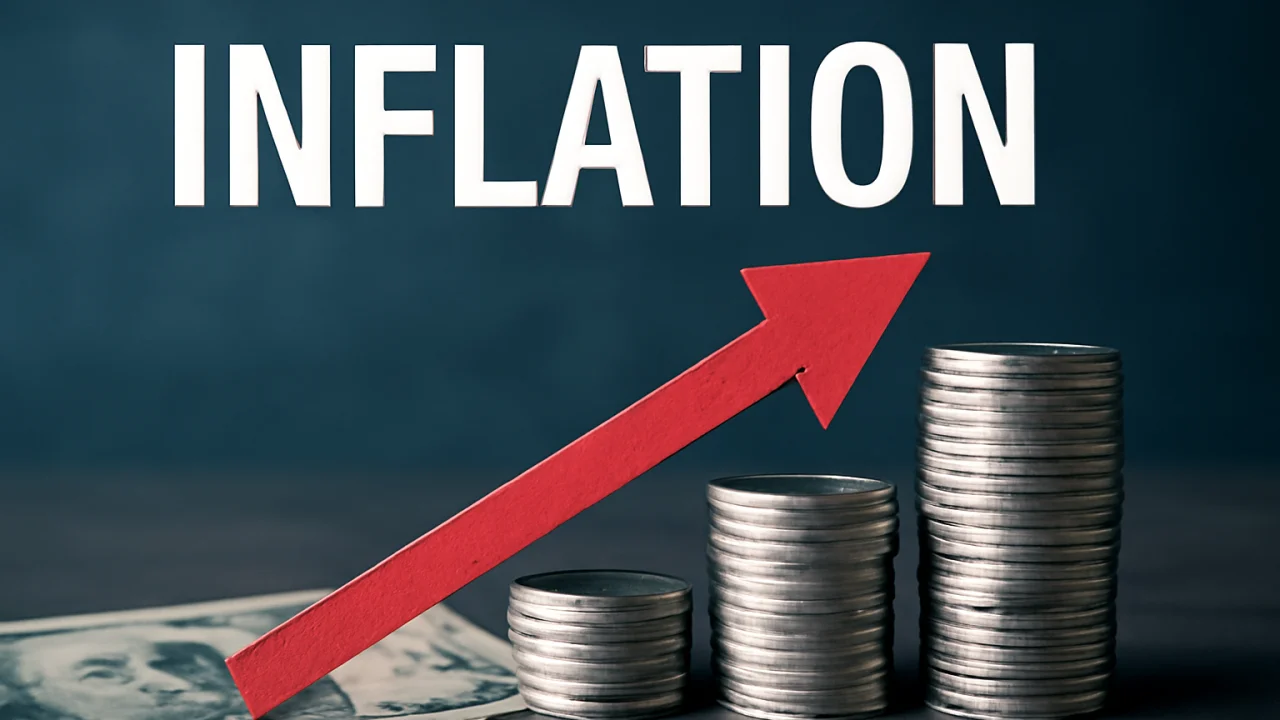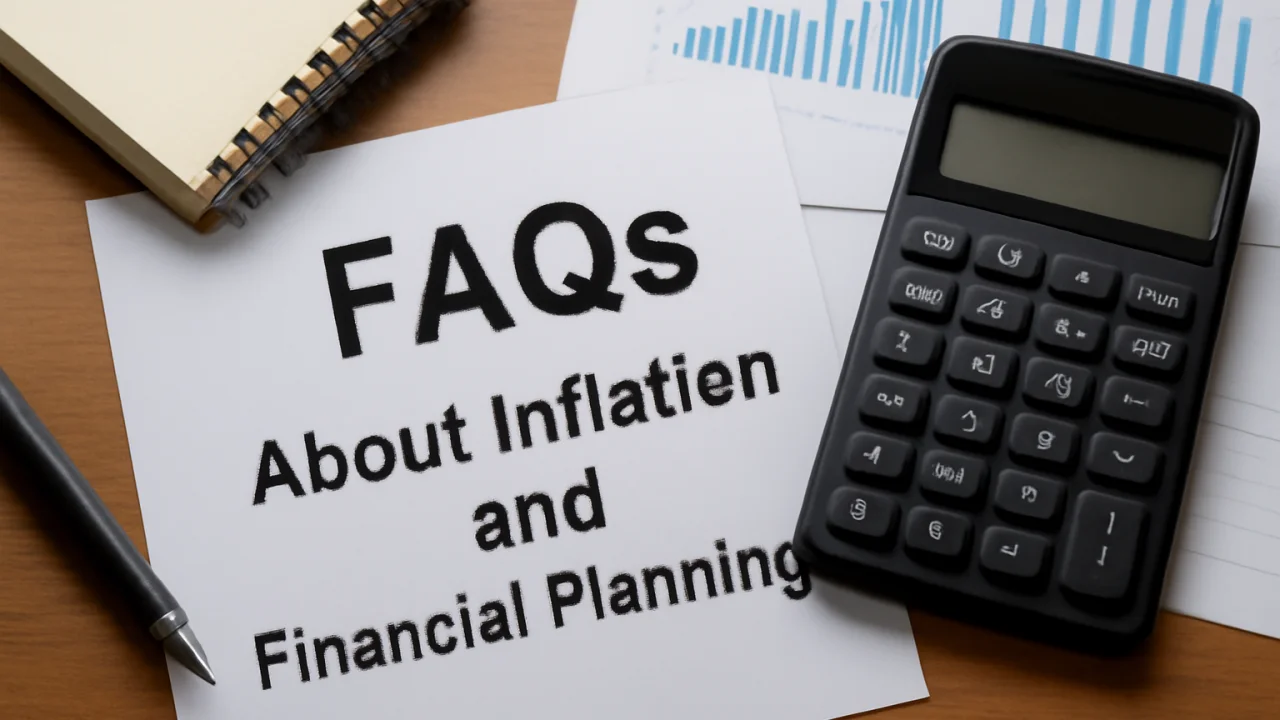
Understanding Inflation: A Guide for 2025 Financial Planning
📑 Contents
Introduction

As we look ahead to 2025, understanding inflation is crucial for effective financial planning. Inflation affects the purchasing power of money, impacting everything from savings to investments to daily expenses. With recent economic fluctuations, many are wondering how to navigate these changes and prepare for the future. This guide will explore what inflation is, its current trends, and practical strategies to manage your finances in an inflationary environment.
What is Inflation?

Inflation is the rate at which the general level of prices for goods and services rises, leading to a decrease in purchasing power. It's typically measured by the Consumer Price Index (CPI) or the Producer Price Index (PPI). When inflation increases, each unit of currency buys fewer goods and services, creating a ripple effect across the economy.
Types of Inflation
Understanding the types of inflation can help you better prepare for its effects:
- Demand-Pull Inflation: Occurs when demand for goods and services exceeds supply.
- Cost-Push Inflation: Arises when production costs increase, leading to higher prices.
- Built-In Inflation: Results from adaptive expectations, where businesses increase prices based on previous inflation rates.
Current Trends in Inflation
As of 2023, inflation rates have experienced significant fluctuations due to various factors, including supply chain disruptions and changes in consumer behavior. To provide a clearer picture, let’s look at the historical inflation data and projections for 2025.
| Year | Inflation Rate (%) | Key Events |
|---|---|---|
| 2021 | 4.7 | Post-pandemic recovery, supply chain issues |
| 2022 | 8.0 | War in Ukraine, energy prices surge |
| 2023 | 5.5 (projected) | Interest rate increases, inflation containment efforts |
| 2025 | 3.0 (forecasted) | Economic stabilization, potential rate adjustments |
How Inflation Affects Financial Planning

Inflation can significantly impact various facets of financial planning, including savings, investments, and spending habits. Here are a few areas to consider:
Savings
As inflation rises, the value of your savings diminishes. For instance, if you have a savings account with a 1% interest rate, but inflation is at 3%, you are effectively losing money in real terms.
Investments
Inflation can also affect investment strategies. Certain assets, like stocks and real estate, may outperform inflation, while fixed-income investments, such as bonds, may struggle. Diversifying your portfolio can help mitigate risks associated with inflation.
Spending and Budgeting
In an inflationary environment, prices for everyday items can rise. Adjusting your budget to account for these increases is essential. Consider using the following strategies:
- Track your spending to identify areas where you can cut back.
- Prioritize essential purchases and delay non-essential spending.
- Look for discounts and promotions to stretch your budget further.
Strategies for Financial Planning in an Inflationary Environment

To effectively plan your finances in 2025, consider implementing the following strategies:
1. Build an Emergency Fund
Having a robust emergency fund can provide a financial cushion during uncertain times. Aim for at least three to six months’ worth of living expenses in a high-yield savings account.
2. Diversify Your Investments
Consider a mix of assets, including stocks, real estate, and commodities, which may perform better during inflationary periods. This can help protect your portfolio's value.
3. Review Debt Management
High-interest debt can become more burdensome in an inflationary climate. Focus on paying down high-interest debts first and consider refinancing options if rates are favorable.
4. Consider Inflation-Linked Investments
Inflation-linked bonds or Treasury Inflation-Protected Securities (TIPS) can provide a safeguard against rising inflation, ensuring your investment returns keep pace with price increases.
FAQs about Inflation and Financial Planning

1. What causes inflation?
Inflation can be caused by various factors, including increased demand, rising production costs, and expansionary monetary policy.
2. How can I protect my savings from inflation?
Consider investing in assets that typically outpace inflation, like stocks or real estate, and maintain a diversified portfolio.
3. Is inflation expected to rise in 2025?
While predictions vary, some forecasts suggest inflation may stabilize around 3% in 2025, depending on economic conditions and policy responses.
4. What is a good inflation rate for the economy?
Many economists consider an inflation rate of around 2% to be optimal for sustainable economic growth.
5. How can I budget for inflation?
Adjust your budget by tracking expenses, prioritizing essential items, and identifying areas where you can cut back or find savings.
6. What role do interest rates play in inflation?
Central banks may raise interest rates to combat inflation, which can affect borrowing costs and consumer spending.
7. Are there investments that thrive during inflation?
Yes, assets like real estate, commodities, and certain stocks can perform well during inflationary periods.
8. How often should I review my financial plan?
It's advisable to review your financial plan at least annually or whenever there are significant changes in your financial situation or the economy.
Conclusion

As we approach 2025, understanding inflation and its implications is essential for sound financial planning. By employing strategies to protect your savings and investments, you can better navigate the economic landscape. Stay informed, adapt your budgeting, and consider diversifying your investments to enhance your financial resilience. With the right approach, you can position yourself for success in the years to come. For personalized financial advice, consider consulting with a financial advisor who can tailor strategies to your unique situation.











